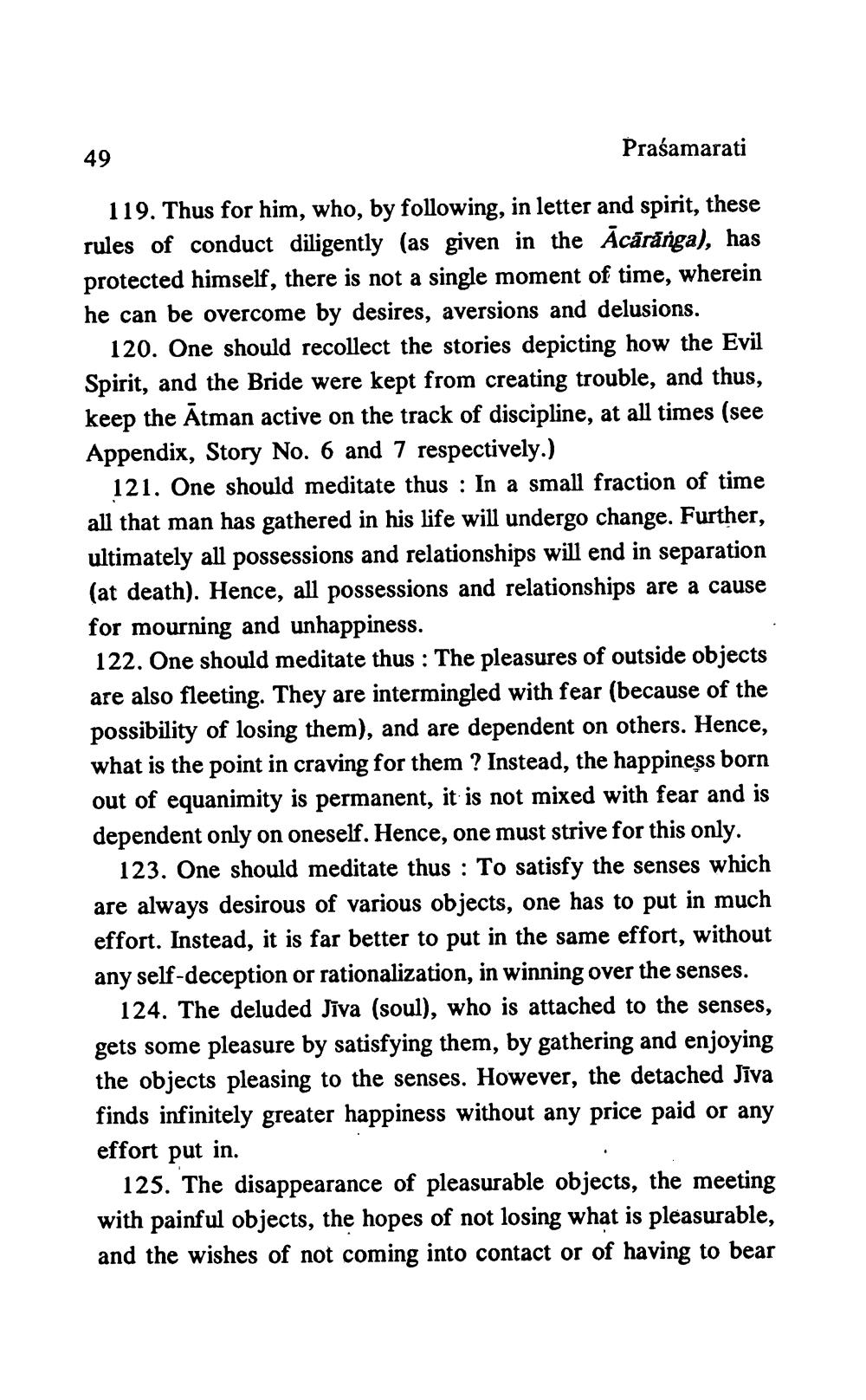________________
49
Praśamarati
119. Thus for him, who, by following, in letter and spirit, these rules of conduct diligently (as given in the Ācāranga), has protected himself, there is not a single moment of time, wherein he can be overcome by desires, aversions and delusions.
120. One should recollect the stories depicting how the Evil Spirit, and the Bride were kept from creating trouble, and thus, keep the Atman active on the track of discipline, at all times (see Appendix, Story No. 6 and 7 respectively.)
121. One should meditate thus : In a small fraction of time all that man has gathered in his life will undergo change. Further, ultimately all possessions and relationships will end in separation (at death). Hence, all possessions and relationships are a cause for mourning and unhappiness. 122. One should meditate thus : The pleasures of outside objects are also fleeting. They are intermingled with fear (because of the possibility of losing them), and are dependent on others. Hence, what is the point in craving for them ? Instead, the happiness born out of equanimity is permanent, it is not mixed with fear and is dependent only on oneself. Hence, one must strive for this only.
123. One should meditate thus : To satisfy the senses which are always desirous of various objects, one has to put in much effort. Instead, it is far better to put in the same effort, without any self-deception or rationalization, in winning over the senses.
124. The deluded Jīva (soul), who is attached to the senses, gets some pleasure by satisfying them, by gathering and enjoying the objects pleasing to the senses. However, the detached Jiva finds infinitely greater happiness without any price paid or any effort put in.
125. The disappearance of pleasurable objects, the meeting with painful objects, the hopes of not losing what is pleasurable, and the wishes of not coming into contact or of having to bear




